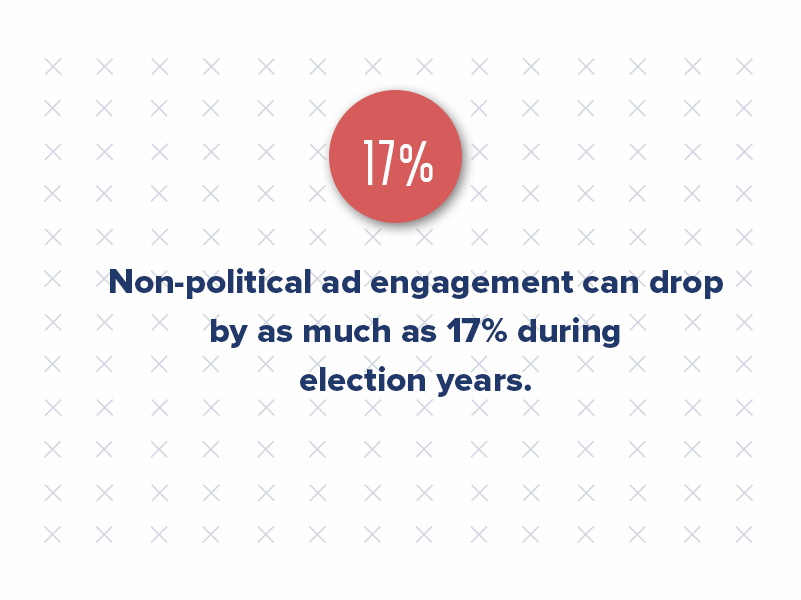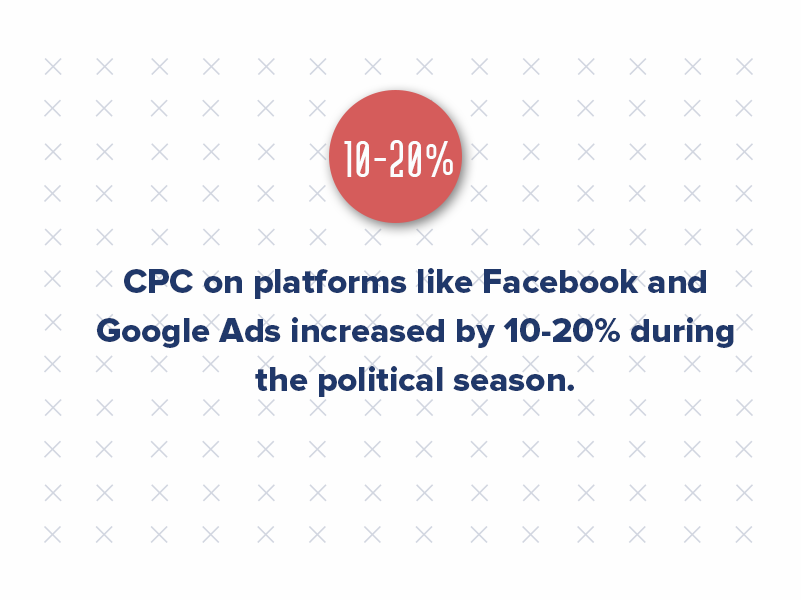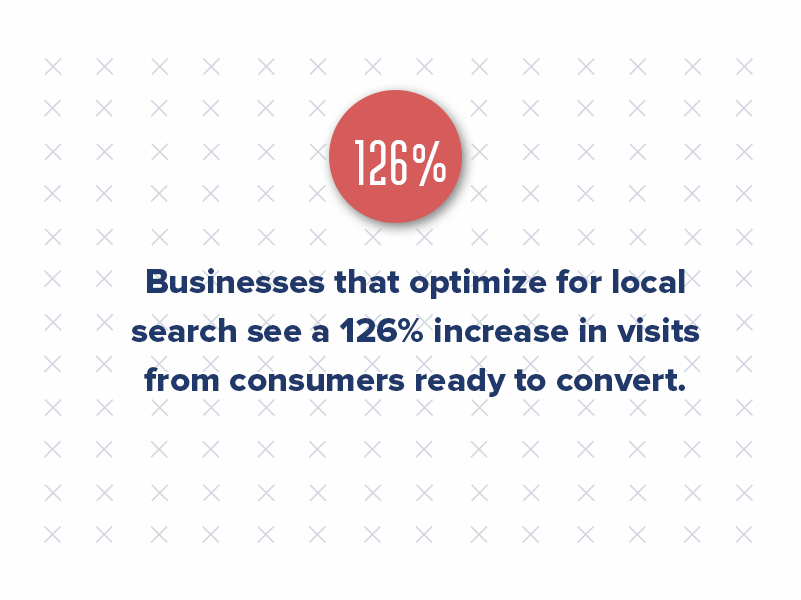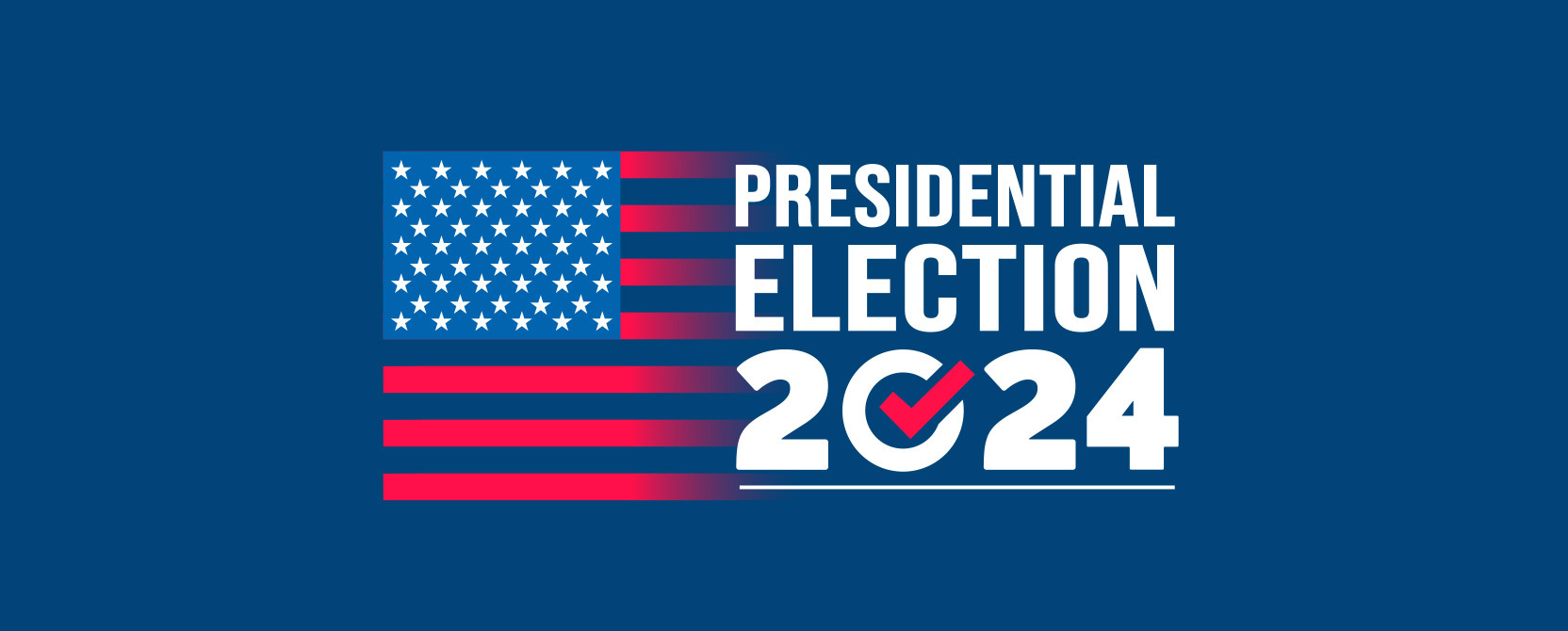Marketing Strategies for Multifamily Amid Political Uncertainty
The political season brings unique challenges to apartment leasing and multifamily marketing, particularly during the fall, which is already known for its leasing slump.
Political campaigns and ads flood online spaces as the market slows, causing distractions and limiting the attention available for leasing advertisements. This can reduce engagement, making it harder for property managers to capture leads.

Historically, the fall season tends to be slower for apartment leasing. Students are back in school, families are settled, and fewer people want to move before the holiday season.
This natural slump is amplified during a political season when social media feeds and digital spaces are dominated by election content.
Lower Engagement, Higher Ad Prices
According to industry data, non-political ad engagement can drop by as much as 17% during election years. This is particularly relevant for apartment leasing as potential renters may focus more on current events than property searches. People may focus more on political news and debates, resulting in lower engagement with non-political content. Renters may also delay moving or leasing decisions due to economic uncertainty tied to potential policy changes.

In addition, political campaigns drive up the cost of digital advertising, with social media ad prices increasing by as much as 10-20% during these periods. This adds extra pressure to maintain a competitive advertising strategy.
With candidates and political action committees pouring millions into ad campaigns, businesses compete for limited ad space. According to AdImpact, political ad spending in the 2020 U.S. election cycle exceeded $9 billion, doubling the 2016 figure. This surge significantly raised the cost of TV, digital, and social media advertising, sometimes by as much as 30-40%, according to Kantar Media.
The cost-per-click (CPC) for online ads also rises during election periods. A Buffer report from 2020 showed that CPC on platforms like Facebook and Google Ads increased by 10-20% during the political season, as advertisers had to compete with campaigns seeking maximum visibility.

This higher competition can drain marketing budgets for non-political advertisers, forcing them to rethink their strategies by increasing spending or shifting focus to more niche or less saturated platforms.
Renters May Delay Leasing Decisions
Renters often become cautious about making big decisions, like signing a lease, during periods of economic uncertainty tied to potential policy changes. This hesitation stems from concerns over shifting government policies that could impact everything from rent control laws to mortgage interest rates.
During election years, when tax policies, economic reforms, and housing regulations are up in the air, renters may hold off on moving, waiting to see how the political landscape will impact their personal finances. In fact, Freddie Mac reports that economic uncertainty, especially around housing policies, directly influences consumer confidence and, subsequently, leasing decisions.
As election cycles tend to introduce unpredictability, both businesses and individuals anticipate potential economic shifts. Renters may fear that political decisions could increase rental rates, alter job markets, or introduce new tax laws that affect affordability. Consequently, they may extend their current leases or delay moving into new apartments until the economic outlook stabilizes post-election.
Businesses May Pull Back on Multifamily Marketing
In parallel, as economic uncertainty rises during elections, businesses — including those in multifamily housing — may reduce their marketing budgets. Historically, companies adopt a “wait and see” approach during politically turbulent times.
According to Nielsen, in 2020, 42% of businesses planned to pause or reduce their marketing spending leading up to the election, anticipating economic shifts and increased ad competition from political campaigns. This pullback can affect lead generation and visibility, especially when paired with the rising costs of ad placements during this time due to heightened competition.
However, cutting back on marketing during election years may backfire. A Harvard Business Review study revealed that companies maintaining or increasing their ad spend during uncertain times could capture marketshare from competitors who pulled back. While reducing spending may feel like a safeguard against potential economic changes, maintaining a presence can help brands remain top-of-mind when the uncertainty settles.

How to Combat the Apartment Leasing Slump
According to previous election data, interest rates, home prices, and rental demand can all fluctuate as renters and buyers adopt a wait-and-see approach. This behavior is often influenced by broader economic concerns tied to political outcomes. In contrast to the real estate market, which can experience price surges or declines during an election, the rental market may face a cooling effect as people delay decisions until there is more economic clarity.
However, there are ways to combat the slump. Despite these challenges, property managers and leasing professionals can adopt strategies to maintain momentum. Focusing on targeted, hyper-local marketing strategies can mitigate the impact of political noise. This means staying agile with campaigns, using real-time data, and adjusting content to address potential renters’ concerns and uncertainties.
Promoting flexible lease terms, offering incentives, and ramping up virtual tours or online engagements can also help keep interest alive during politically charged times.
1. Increase Your Digital Presence
With distractions from political content, ensuring your property remains visible online is crucial. A well-optimized website with clear calls to action and engaging content can help keep prospective renters focused on your property.
2. Leverage Local SEO
As the competition for attention heats up, having a strong local SEO strategy can make a big difference. According to HubSpot, businesses that optimize for local search see a 126% increase in visits from consumers ready to convert. This is especially important during political seasons when national news can drown out non-political content.

3. Diversify Your Advertising Channels
Given the rise in social media advertising costs, consider diversifying your ad spend across different platforms. Instead of relying solely on Facebook or Instagram, explore Google Ads, Bing, and even niche real estate platforms like Zillow or Apartments.com. Diversification allows you to reach audiences in less competitive spaces.
4. Emphasize Community and Resident Stories
In times of political noise, authentic, community-driven content resonates well. Share testimonials, resident stories, and highlight local events. This showcases your property and appeals to renters looking for a genuine connection.
5. Invest in Retargeting Ads
If prospective renters visit your website but don’t convert immediately, retargeting ads can bring them back. These ads remind potential renters of your property, helping you stay top of mind despite political distractions.
Strategies for Continued Multifamily Success
The need for adaptive strategies becomes even more apparent as political seasons influence the apartment leasing market. With voter behavior and market dynamics shifting, renters and property owners face unique challenges during election years.
To stay competitive, multifamily properties must refine their marketing efforts, focus on resident retention, and remain agile in response to fluctuating demand. Leveraging data-driven insights and maintaining an online presence will be crucial for apartment owners to navigate the uncertainties of the political climate and ensure continued growth and stability in their leasing operations.




